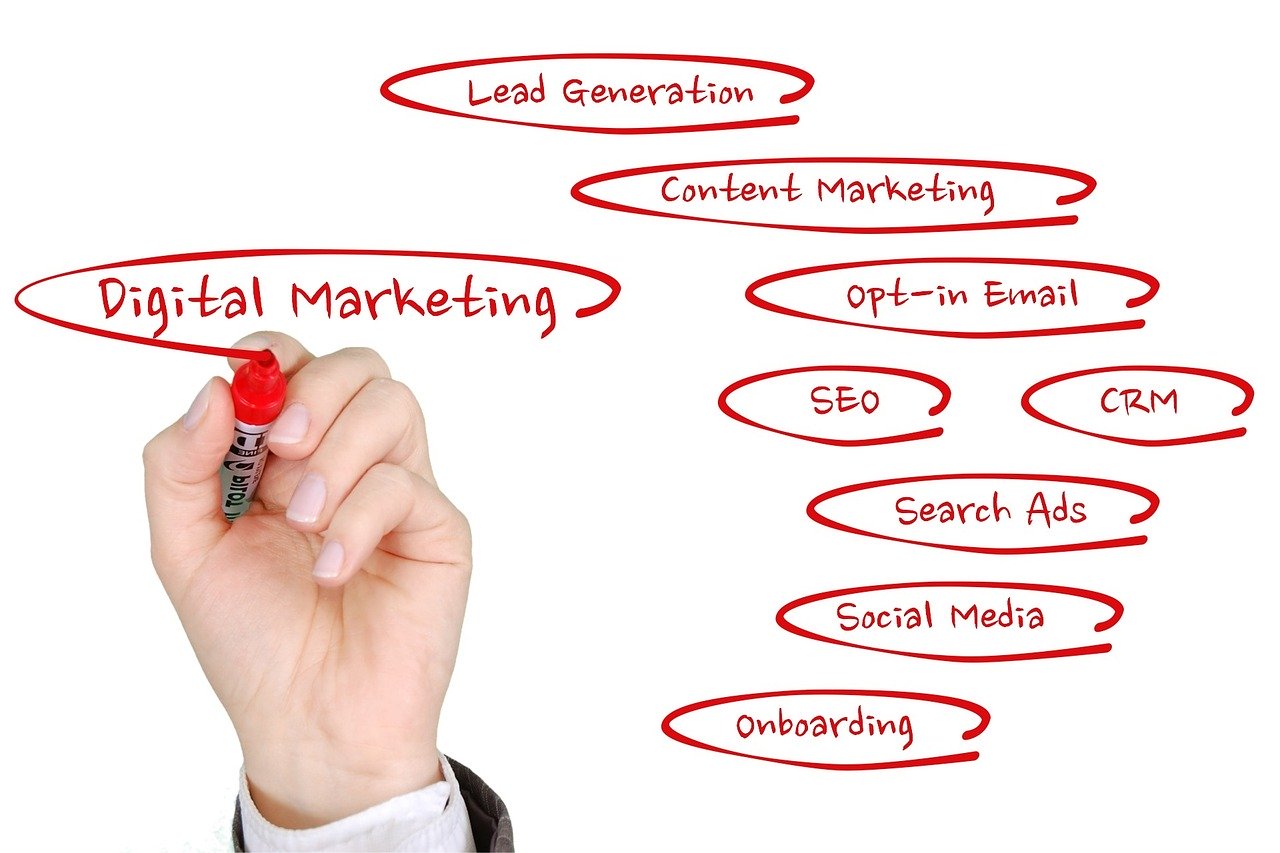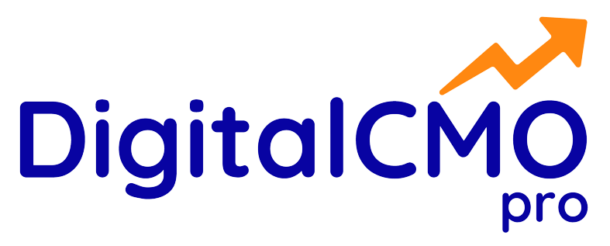What is Digital Marketing Strategy?
Digital marketing strategy is a detailed plan of action to achieve specific and clearly defined digital marketing goals. It defines a roadmap to achieve your marketing goals over a predefined period.
It gives a guiding direction to a series of marketing actions using digital marketing channels.
It involves a deeper analysis of the marketing challenges your business is facing.
And then laying down a detailed marketing plan that includes a set of marketing actions or initiatives using digital marketing channels, to overcome the challenges and achieve the goals.
Strategic digital marketing uses digital marketing channels such as paid media, earned media, and owned media to achieve the defined goals.
Every business will have a unique strategy that fits the business needs and involves a combination of approaches.
Many businesses run digital marketing campaigns without having a digital marketing strategy in place.
Executing a series of marketing actions without a comprehensive plan or specific larger goals in sight is not strategic digital marketing.
Strategic marketing is deeper, long term, and is the overarching guiding bible for your marketing tasks or actions over time.
The purpose of your marketing action is very important to define – why are you doing those marketing actions? What are you trying to achieve? Are there specific goals?
Online marketing strategy defines what you should do, as well as what you should not do over a period of time. It is the foundation for building a plan that is both focused and achievable.
One of the key elements of a digital marketing strategy is the specific and overarching goal/s that your strategy works towards – this could be one or more specific and larger goals that impact the business.
Examples of the marketing goals could be – generating 1 lakh of registered users’ base in 1 year, or generating 50,000 number of paid users in one year, or increasing your website traffic by 25% in terms of new users in one year
Digital Marketing Strategy Examples

Now that we understood what digital marketing strategy is, let’s look at some examples of digital marketing strategies:
Integrated digital marketing with content at its heart is one example of a digital marketing strategy. All the marketing channels work seamlessly and coherently in creating a multiplier effect.
Marketing funnel strategy is another example of digital marketing strategy – where you generate and use different content at each stage of your marketing funnel to try and push more and more customers towards the next stage of the funnel.
Paid ads driven marketing strategy in the initial stages of a business is another example of strategic digital marketing where paid ads such as Google Ads, Facebook Ads and others are used to generate the initial traction, traffic and leads for a new business. This aims at achieving the early traction and scale for a business.
Content marketing strategy is another example where content is used to attract customers and to provide value to them. These customers enter into your funnel via content and then become your leads and eventually once they develop trust – they become your paid customers.
Lead generation using lead magnets and building your email lists is another online marketing strategy. These email lists are then used to market your products and convert them into your paid customers.
Marketing Strategy vs Marketing Tactics
Let’s now look at how digital marketing tactics differ from digital marketing strategy.
Marketing tactics are specific actions that you take as part of your digital marketing strategy execution.
For example if your strategy is content led integrated digital marketing, then one of the tactics could be to send a content email newsletter to your email list, every time you publish fresh content on your website/ blog.
Marketing tactics work under the direction of your strategy and the different tactics add up to help you overcome your marketing challenges and achieve the marketing goals that are defined by your guiding digital marketing strategy.
Marketing Strategy vs Marketing Campaigns
Digital marketing campaigns and digital marketing strategies are not the same.
Digital marketing campaigns are what you use to achieve the goals of your digital marketing strategy.
In other words these are specific campaigns that you undertake as part of implementing your digital marketing strategy and to achieve the goals of your digital marketing strategy.
For example if the goal of your digital marketing strategy is to increase your new users base by 20% in one year, then you may deploy a social media marketing campaign for couple of months on Facebook, Instagram and Twitter for attracting new users.
You can use an exclusive piece of content as a bait in this campaign to attract new users to your website.
How to Create a Digital Marketing Strategy?

Having understood what is digital marketing strategy and the relation between strategy and marketing tactics and campaigns, let us now look at how to create digital marketing strategy for any business
Every business will have its own unique digital marketing strategy depending upon the nature of the business, the type of products/ services, your target market and the business environment including competition.
A comprehensive digital marketing strategy has several important components such as defining customer persona, brand strategy, digital marketing goals, competitor analysis, digital marketing channels to be used, marketing budget, digital marketing plan and analyzing results.
Let’s look at each component of creating a digital marketing strategy:
1. Define customer persona
Identify your target customer segments and create a detailed customer persona – who are you marketing to or who is your digital marketing strategy targeted at?
You should establish a clear understanding and definition of your target customers – their demographics (age, location, and income), behaviors, choices, preferences, lifestyles, media habits, etc.
Understand their problems/ challenges and their dreams/ desires and aspirations.
The data for understanding your target customers is collected by doing customer surveys and research.
Once you collect the data, analyse it to identify the different specific target customer segments that emerge from the data and define your ideal customer persona that represents each segment.
You may have one or more target customer personas depending on the different segments that emerge from the data.
2. Define your brand strategy
It is important to build a brand from a long-term perspective and hence you need to create a strong brand strategy that can be implemented via your digital marketing strategy.
Your brand strategy will include various components such as your brand value proposition, brand positioning, brand USP, and brand values.
Create a strong brand identity in terms of brand designs, brand voice, brand look & feel, brand logo, etc.
Define your brand guidelines to be followed in your digital marketing strategy implementation.
A strong brand will help in creating a lasting impression in the minds of your target customers.
3. Define your digital marketing goals

Your digital marketing goals should be aligned with your business goals.
For example, if your business goal is to increase sales revenue by 20%, then your marketing goal could be to increase the new paid user base by 30% to help achieve this business goal.
A specific and well-defined marketing goal is a key element of your digital marketing strategy. Your entire strategy is formulated keeping this goal in sight.
Some other examples of digital marketing goals could be generating a 1 lakh registered user base in 1 year or increasing your new users’ website traffic by 25%.
While setting goals, ensure these are SMART Goals:
Specific – clear, specific, and narrow goals.
Measurable – define the metric that will measure the goal accomplishment or progress.
Achievable – set realistic goals that are achievable within the time frame and available resources.
Relevant – your goals should be relevant to your business objectives and the long term direction.
Time-based – it is important to define the time frame in which you want to achieve your marketing goals. It is important to set the end-date or deadline for achieving your goals.
4. Evaluation & Analysis
Do a deeper and realistic analysis in understanding the marketing & business challenges that your company is facing.
Establish an understanding of the current state of your business, the market, and the business environment.
Study your competition and analyse their digital marketing strategy – what is their strategy, what digital media channels are they using, what is their content and communication strategy, what is their market share, marketing spends, etc.
Analyse your digital marketing strategy in the past and what worked and what did not. Carry forward the learnings from your past strategy into building your current strategy.
Evaluate your current media channels – owned media, paid media, and eared media channels. Study the contribution of each of these in your past marketing strategy.
Owned media is your own media vehicles that include your website, blog, social media profiles/ handles, and any other content you publish in the form of eBooks, infographics, etc.
Analyse if you are able to attract and engage your target audience with your own media channels and what kind of content works in doing so.
See if these are driving results in terms of contributing to your marketing goals.
Paid media includes paid advertising channels such as Google Ads, Facebook Ads, Twitter Ads, etc.
Evaluate which of these channels have worked in the past and have been effective and cost-efficient in delivering results.
You can also compare these paid channels in terms of volume and ROI and this will help you decide where to focus in the future.
Earned media includes reviews, any articles, social media mentions, and awards – basically any form of free publicity.
Evaluate the amount of earned media your business gets and how you can improve on the same in your future strategy.
5. Pick your digital marketing strategies
Here you choose your digital marketing strategies that are most suitable for your business and for achieving your goals.
For example, you may choose integrated digital marketing with the content being at its heart as your digital marketing strategy.
In that case, your entire digital marketing action plan will revolve around implementing this strategy.
Similarly, you can choose from other strategies such as a marketing funnel strategy or a paid media driven lead generation strategy using Facebook Ads & Google Ads or even a social media marketing led strategy.
You could choose one strategy or a combination of more than one strategy.
6. Determine your resources – Budget & People
At this stage, you should determine the number of key resources you have in terms of spend budgets and people/ manpower
Budget – establish the spend budget for your digital marketing strategy.
Divide the overall budget into each campaign that you have planned in your strategy.
Allocation of the budget should be done on the basis of the nature of the campaign, channels being used, and the expected ROI.
People – Also determine the people you have, to execute your digital marketing strategy.
People could be the in-house marketing team, or outsourced agency team, or a combination of both.
You must establish the number of people needed, the level of expertise and different skills required for effective implementation of the strategy
7. Create your digital marketing (action) plan

Now create a marketing plan that details the execution of your digital marketing strategy.
Usually, a digital marketing plan is for a defined time frame, mostly one year.
This plan would have a series of marketing actions spread through the time frame of one year.
It will have detailed marketing campaigns and their implementation timeline, media channels to be used, spend budgets for each campaign and a list of people responsible to implement the campaigns.
It will also define targeted results/goals for measurement against actual results.
It will include a digital marketing actions calendar spread throughout the year with specific actions enlisted on the calendar timeline.
8. Implement your strategy and measure the results
Now implement the series of marketing actions/ campaigns detailed in your digital marketing plan.
Your digital marketing plan can never be a perfect one since it’s based on analysis and certain assumptions.
As such you need to constantly keep measuring and analyzing the results. Monitor if your results are in the right direction of your defined KPIs and marketing goals.
Keep incorporating learnings, making changes and improvements where needed, as you go along implementing your marketing plan.
If something is not working, then inspect/ analyse the different elements to understand why it is not working.
Performance measurement of your digital marketing strategy is very important to ensure success.
You can take the help of the various tracking tools, measurement, and analytics tools for monitoring the performance.
Benefits of a Digital Marketing Strategy

Let’s now look at the need for and the benefits of a digital marketing strategy.
Why is it needed?
Strategic digital marketing is a must for achieving your digital marketing goals.
In absence of a digital marketing strategy, your business doesn’t have a roadmap for achieving your marketing goals.
Without a digital marketing strategy, you do not know the ‘how’ of achieving your marketing goals.
In this scenario, your digital marketing campaigns will not attain the desired success in driving results.
The various resources you will deploy will not work towards achieving your specific common goals.
A comprehensive digital marketing strategy is needed as it helps to define your marketing goals and outlines an action plan to achieve these goals.
It also ensures that you keep monitoring and measuring the results of your marketing campaigns and take timely corrective measures.
Benefits
Digital marketing strategy acts as a guiding map and gives direction to your digital marketing campaigns.
It helps to focus digital marketing actions towards achieving specific and well-defined marketing goals that are aligned to your business objectives.
In fact, it helps your business to sharply define its marketing goals in the first place.
It helps to define the target customer and the various customer segments.
Digital marketing strategy brings integration and cohesion between various digital marketing actions towards achieving a common goal.
An integrated approach results in higher ROI for digital marketing spend.
A robust and results-focused strategy helps to get the required budgets for digital marketing campaigns.
Continuous and ongoing measurement of results ensures that the digital marketing campaigns are optimized on the go.
That brings us to the conclusion of this post.
Hopefully, it gives you an outline of what is digital marketing strategy, how to create one, and why it is important for the success of digital marketing campaigns.
If you want to have a conversation around the digital marketing strategy for your business, contact me here.
If you found this article useful, please leave your comments or feedback on this post in the comments section below. If you have any question regarding digital marketing strategy, please ask in the comments section and I will respond to it.
You may also share this article with your network.
I would also like to suggest some other related bog posts for reading:
Read this blog post ‘The Hidden Marketing Strategy You Won’t Believe’ for understanding some fundamental concepts of marketing.
If you want to know more about SEO read this ‘How Search engine Optimisation works’.
Thank You
Vinayak Warke



That was an awesome article. Quite an in-dept one. Loved it reading.
Bhavesh, thank you for the feedback.
Nice One Sir. Loved Your Article.
Thank you Husain!
Such a detailed Article and Well Researched and very well written
Thank you George for that valuable feedback.
Really nice written….Great information
Thanks a lot Sandesh!